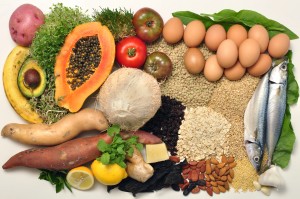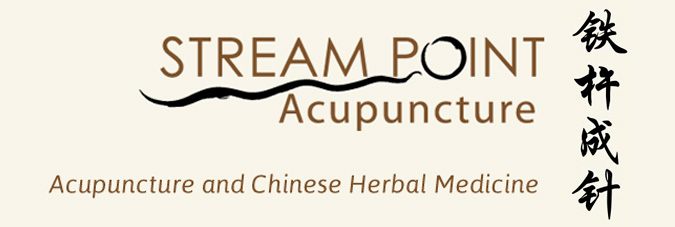 GMOs (Genetically Modified Organisms) seem to be one of the biggest “hot topics” circulating around these days: What are they? Are they good or bad? What are their health risks? So this week’s blog is going to start with some basic facts about GMO’s with my own personal opinion about their presence in the food market.
GMOs (Genetically Modified Organisms) seem to be one of the biggest “hot topics” circulating around these days: What are they? Are they good or bad? What are their health risks? So this week’s blog is going to start with some basic facts about GMO’s with my own personal opinion about their presence in the food market.
What are GMOs?
Starting sometime after World War 2, the global market felt there was a food shortage due to an increasing population and failed crops. In response, pesticides like DDT were born, swiftly followed by environmental pollution and serious health effects, namely cancer. As a result, many of these chemicals were banned, and a new approach was called for. This gave birth to genetic engineering and genetic modification. GMO’s are plants or animals that have been genetically engineered with DNA from bacteria, viruses, or other plants and animals. Using biotechnology, scientists extract genes from one species and insert them into another to achieve a desired characteristic. The most common use of GMOs are to make crops resistant to infestations and inclement weather such as frost or drought. One example is the use of arctic fish genes to make strawberries and tomatoes tolerant to frost. GMOs are not just used for crops, GMOs are used in cosmetics, medicines, supplements, clothing, and other non-food products.
What are the side effects of GMOs? The effects of GMO’s are multidimensional…
Genetic engineers are continually encountering side effects when creating their GMOs. GM Plants will emit toxins and react to weather, they’ll malfunction or become disease ridden and perish. Often they’ll contain inadequate amounts of nutrients or have dormant genes activated causing the plant to produce unknown proteins of which the effects are unknown if ingested. There have also been numerous studies linking GMO farms with severe damage to soil and local ecosystems, along with infestations of herbicide-resistant superweeds. Not to mention that the more farms that are using GMO seeds will inevitably lead to a decrease in biodiversity, which could be detrimental to the planet.
Health Effects: It’s been difficult to address the full extent of the health effects of GMOs since they are still new to the food market, and time has not allowed for enough “research” to accumulate. However, preliminary studies have linked GMOs with a variety of common chronic health complaints such as: increased food sensitivities and allergies (no kidding, right?), irritable bowel syndrome, infertility, accelerated aging, and immunosuppression. Additionally, the ingestion of GMO food leaves byproducts behind in our bodies, possibly causing long-term problems. It’s also hard to ignore the rapid increase of certain health problems after the introduction of GMO foods in 1996. Food allergies have sky rocketed, along with reproductive disorders, digestive disorders, and the ever insidious childhood conditions like ADHD and autism.
Economical Effects: Most of the big biotech companies, Monsanto being the biggest, own patents on their GMOs. Traditionally, there is a universal law that prevents patent on life (plants, animals, humans), however Monsanto argues that biotechnology lies outside of that law. As a result, Monsanto’s patents on GMO technology also mean patency on the plant seeds containing GMOs. This is a very slippery slope. If big companies own patents on seeds because they seed contains GMOs, it opens the door to own patents on cattle and other livestock that eat the seeds that contain GMOs, or are given medication or hormones that are genetically modified. What about humans that ingest GMOs? I know that’s an incredibly implausible situation, and may start to sound too “conspiracy theory” – but the point is that there is now a huge amount of gray area in the patency of life. Another huge impact lies on the small farms that don’t wish to use GMO seeds. Imagine 2 corn farms. One farm is a small family owned farm that has used their own seeds for generations; the other farm has decided to purchase Monsanto’s GMO seeds for their corn. Both farms plant their crops and await the harvest. In that time, wind blew some of the GMO seeds from the second farm into the first arm, and come the harvest the first farm as unknowingly grown and sold GMO corn. Monsanto discovers this and sues the first farm for selling their patented crops to a point that the farm goes out of business. This is not a dramatization, and is a huge problem that many small farms are encountering. As a result, companies like Monsanto are at risk of gaining a world-wide monopoly on food, which is bad news for the economy, our wallets, and our health. I’d encourage you to watch Future of Food (www.futureoffood.com) to learn more.
In a nutshell, I feel very confidant in saying that I am 100% ANTI GMO – there are just too many risks, too much gray area, and not enough (any!) benefits. Monsanto and other biotech companies insist that GMOs are just an extension of natural breeding and therefore do not pose any different risks than naturally bred crops. In fact, they’ll go as far as to say that GMOs are safe, nutritious (perhaps even more nutritious), and will benefit both the environment and the economy. The truth is, as I see it, is that GMOs are nowhere near natural or regulated for safety, and will not benefit our planet or our wallets. They are less nutritious, allergenic, and even toxic compared to naturally bred crops. They will decrease biodiversity and decrease the quality of crops. They will create severe problems for farmers by creating herbicide-tolerant superweeds, compromised soil quality, and damaged ecosystems. They pose the risk for a global agricultural monopoly, and can damage our agricultural economy severely. And I cannot stress this enough: GMO Technology will not feed the world because it does not address the root problem of world hunger, which is a problem with distribution not production. It is a problem our society has with poverty and access to food that needs to be addressed on a global level.
To read more about GMOs, I would invite you to check these websites out:
http://www.nongmoproject.org/
http://www.nongmoshoppingguide.com/about-gmos.html
http://www.thefutureoffood.com/
http://www.responsibletechnology.org/10-Reasons-to-Avoid-GMOs
If you really want to read more, there is a fantastic 123-page evidence based research article you can download for free at:
http://www.nongmoproject.org/wp-content/uploads/2010/08/GMO_Myths_and_Truths_1.31.pdf
Until next week, be well everybody, and be mindful of what you’re eating 🙂 – Andrea

